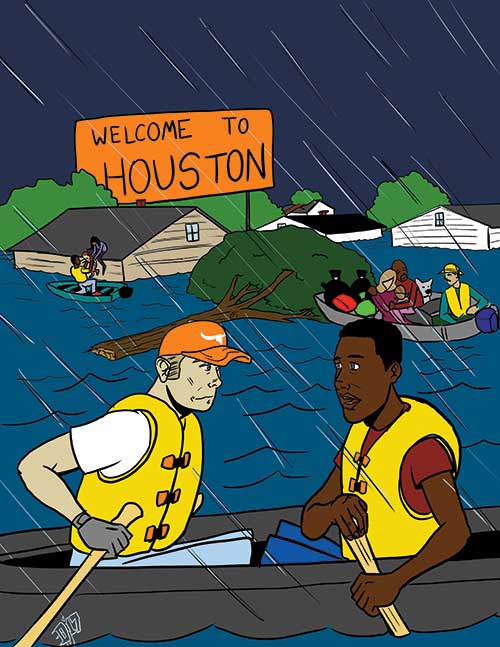
Former President Ronald Reagan endeared himself to conservatives with his belittling assessment of the role of government. He once stated, “The nine most terrifying words in the English language are ‘I’m from the government, and I’m here to help.’” After hurricanes Harvey and Irma, residents of Houston and Florida do not likely support that point of view. Very often the government is the only reliable refuge when natural or personal crises afflict U.S. citizens.
Everyone understands that the government has a role in assisting American victims in hurricanes. That task is at least to remove debris, drain flood waters and restore utilities. But federal support cannot be taken for granted. Ted Cruz and John Cornyn, conservative Republican senators from Texas, voted to restrict such assistance following Hurricane Sandy that hit New Jersey in 2012.
Both senators have now changed their tune since Harvey hit Texas, but their prior opposition raises a serious question about the extent of assistance by the government, financial and otherwise, when citizens are afflicted by financially devastating emergencies. Losses to many residents of Houston and Florida from Harvey and Irma will undoubtedly be beyond their financial capacity.
When considering that question, it is also timely to note that other sudden disasters can strike. A serious illness can also undermine the financial stability of a family. Studies indicate that the inability to pay medical bills causes more personal bankruptcies than credit card debt or home mortgage defaults. Yet America still has not resolved the issue of what level of medical care should be provided by the government.
With digital photos of the hurricanes so readily available, citizens would be horrified if people were not being rescued from the destruction in the Houston area and Florida. Yet many Americans, especially those in urban areas, are insensitive to the medical crises regularly occurring, especially in rural areas.
An important element of the Affordable Care Act is to provide states with the opportunity to expand health care coverage to low-income families. The government will pay 90 percent of the cost from 2020 and beyond. Yet 19 states have still refused to take advantage of the expanded Medicaid program. Out of sight for most people, rural hospitals are closing. In his weekly newsletter, Hank Sanders, a black Harvard Law School graduate and long-term state senator in Alabama, provides an account of losing hospitals in Perry, Wilcox and Green Counties. When they close, health care in those counties will be gone.
Hurricanes and health care induce Americans to give greater thought to what the role of the federal government should be in modern times. Industrialization and urbanization have coalesced to antiquate the concept of rugged individualism. The present system of health care relying heavily on the private enterprise model is too expensive and too inefficient. Perhaps changes proposed by the Democrats to extend Medicare to younger citizens hold some promise.
Citizens still have the authority to control the government, and there are numerous efficiencies from working together that could not happen with rank individualism. People working together helped to minimize the impact of the hurricanes. It might also work for health care. But the people cannot succeed without government assistance.






